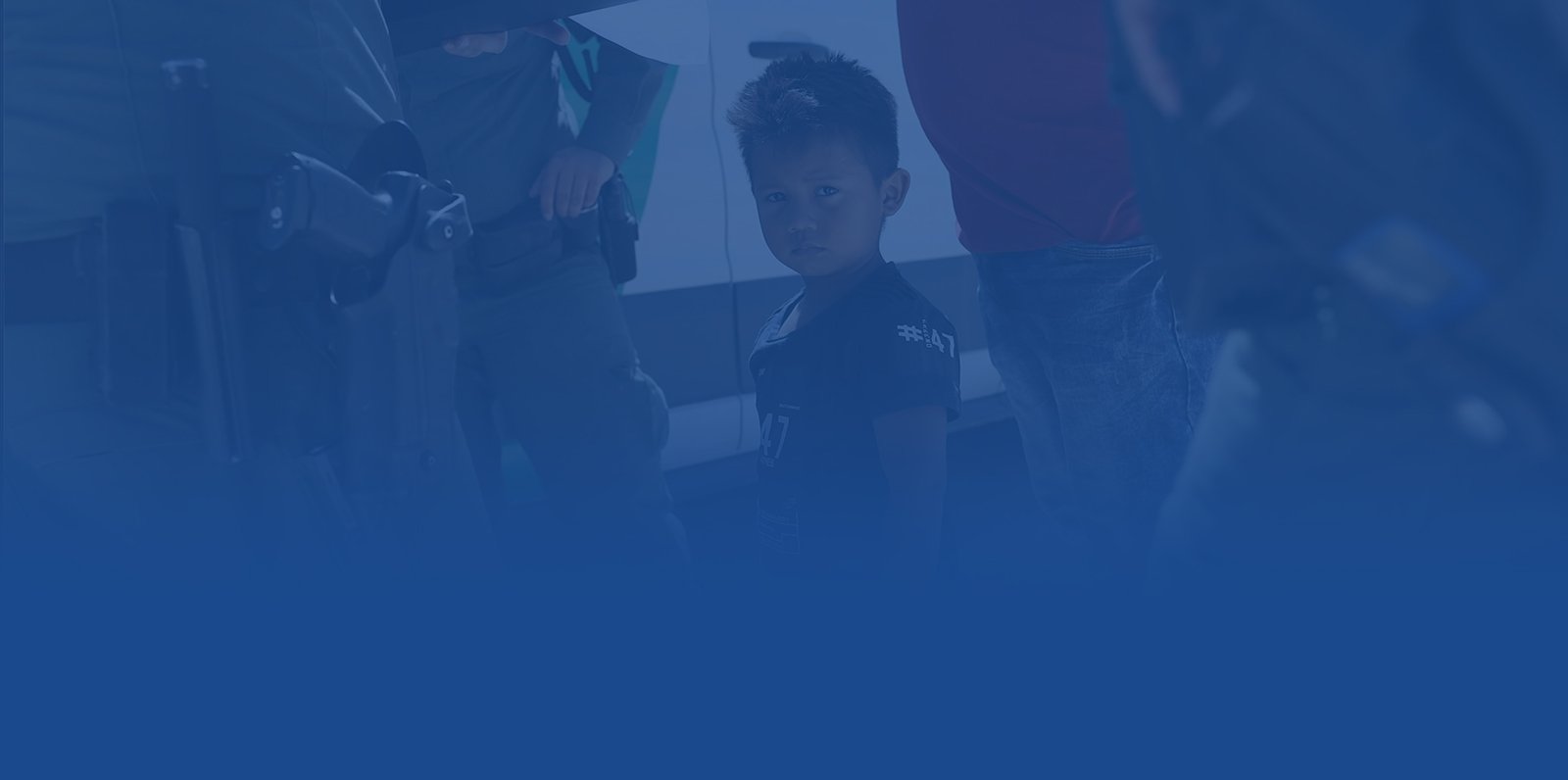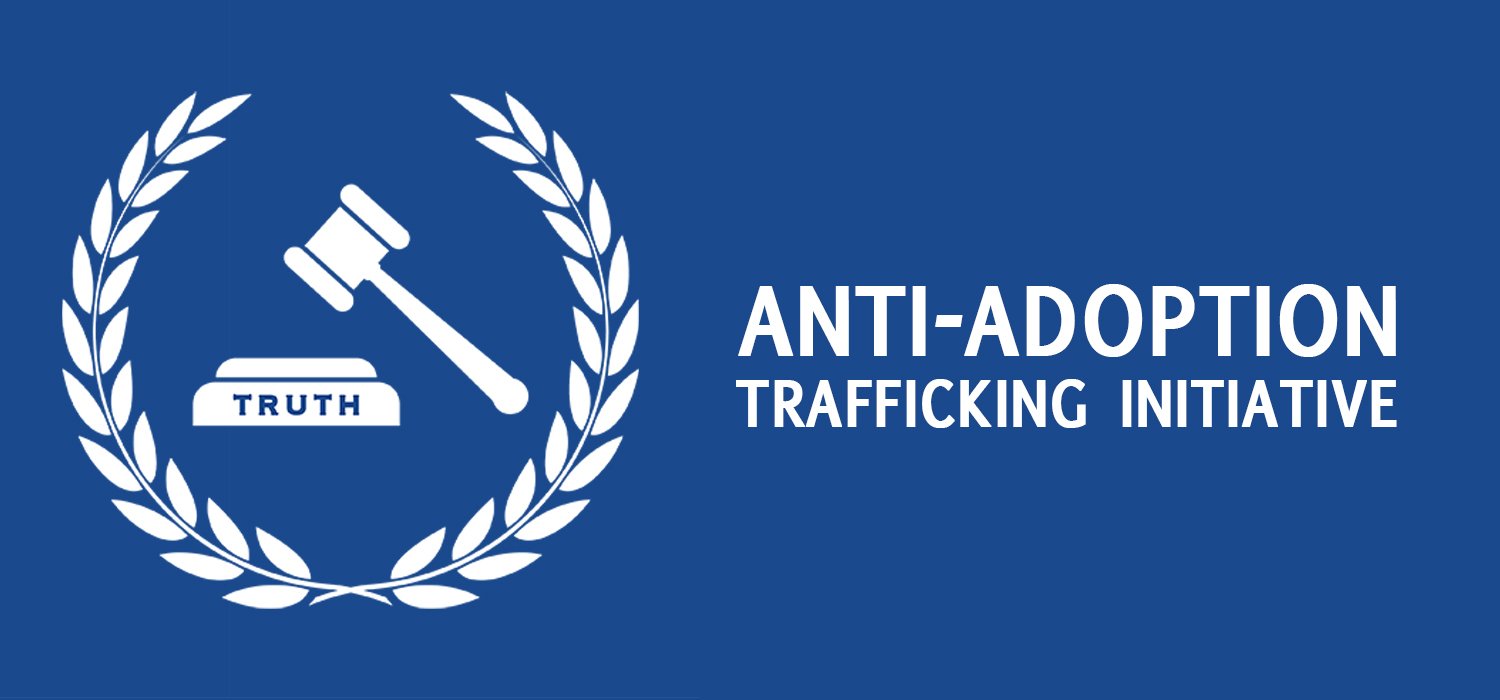
ANTI-ADOPTION TRAFFICKING
What is Adoption Trafficking?
Adoption trafficking occurs when a person is trafficked through the process of adoption. “Human Trafficking is the recruitment, transportation, transfer, harbouring or receipt of people through force, fraud or deception, with the aim of exploiting them for profit. Men, women and children of all ages and from all backgrounds can become victims of this crime, which occurs in every region of the world. The traffickers often use violence or fraudulent employment agencies and fake promises of education and job opportunities to trick and coerce their victims.” - U.N Office on Drugs and Crime
Adoption is defined as “the action or fact of legally taking another's child and bringing it up as one's own, or the fact of being adopted.”
What is involved with this “action of legally taking another’s child”?
Recruitment of Suppliers and Buyers
Adoption trafficking involves the crimes of baby farming and child harvesting. Baby farming was popularized during the 19th century, primarily in Britain and the U.S. as a way for mothers to exchange custody of their child for a fee. “Baby farmers, usually middle-aged women, solicited these infants through "adoption" advertisements in newspapers, and through nurses, midwives, and the keepers of lying-in houses (private houses where poor, unwed women could pay to give birth and arrange for the transfer of their infants to baby farmers).” - Encyclopedia.com
Recruitment of women (suppliers) for their eggs and offspring continues today.
“In 2000, I gave birth to a healthy baby girl in the Armenia Medical Center. I was forced to give up my child.” - Syuzan Patvakanian
“Drop Box for Babies: Conservatives Promote a Way to Give Up Newborns Anonymously” - New York Times, 2022
“More than 60 arrested in £500,000 European human egg trafficking and illegal adoption ring” - The National News, 2019
Recruitment also targets the buyers who have a desire to become parents. Traffickers exploit this vulnerability, often seen in individuals and couples who have experienced a loss of a child or infertility. Adoption is celebrated worldwide as a way to save a child’s life. Popularly known as “Saviorism” or “White Savior Complex” in transracial adoptions, recruitment tactics and marketing campaigns tell people to “do the right thing.” Instances of adoption trafficking increase during times of war and natural disasters. A primary concern for buyers is the high cost of adoption, which also remains the focus of efforts to reduce the costs by adoption programs and governments.
“I am committed to helping families pay for the costs of adopting a child, which is why I have called for the adoption tax credit to be made fully refundable. This would enable devoted adoptive families to worry less about the costs of welcoming children into their homes and focus more on laying the supportive foundation for full and happy lives.” - U.S. President Joe Biden, 2022
Transferring and Transporting People
The adoption process involves a set of complex mechanisms to transfer and transport a person. Crimes of coercion, deception and fraud have been found throughout the history of modern adoption programs. The British Child Migration Scheme referred to children as orphans and used the statements “best interest of the child” and “better life” when recruiting families to relinquish their children. Promises of a better life and education were quickly replaced with the reality that the children were used to populate a labor force for the new colonies in Australia. Commodification of women and their children has become common practice wherever adoptions are conducted. This involves the “act or fact of turning something into an item that can be bought or sold. The act or fact of exploiting a person or thing for profit.” - Dictionary.com
An example of commodification is the crime of falsifying official documents, such a child’s birth certificate to facilitate the transfer of custody (ownership) and transportation between countries or states. The U.S. considers birth certificate fraud a felony crime, yet, is legalized if done for the purpose of adoption. The child is not of a consenting age and has been subject to objectification, abuse and infanticide.
Adoption also has been associated with large scale campaigns against indigenous people in the United States., Canada and Australia. These campaigns have been referred to “cultural genocide” by the survivors. Intercountry adoption programs have been under recent investigations revealing widespread abuses and corruption that have resulted in a significant decrease of adoptions. Developing countries have been a main target for intercountry adoptions. Adoption has also been used during times of war and trafficking children for adoption has been identified as a war crime.
**********

Anti-Adoption Trafficking Initiative
AATT Global is an independent international taskforce with a mission to investigate and report on adoption trafficking activities to protect the victims of adoption trafficking and safeguard their rights.
Is Adoption Trafficking a Public Health Crisis?
The fastest growing criminal industry worldwide is the buying and selling of people. The adoption industry contributes approximately $13 billion to the $150 billion human trafficking industry. - adoptionbirthmothers.com New markets are emerging as adoption practices expand into the surrogacy industry and embryo adoptions. The crisis increases exponentially when combined with statistics indicating that there are over 140 million orphaned children worldwide (UNICEF) and increasing attention to the trauma(s) resulting from adoption which include:
Loss of genetic connection, family ancestry, community, culture, and homeland
Parental separation, estrangement, and rejection
Development of Complex PTSD and other mental health issues
Human rights violations, restrictions, and gatekeeping
Violence and abuse (threat to life, deception, coercion)
Colonization, religious cleansing, and cultural genocide
Adverse Childhood Experiences are a Public Health Issue
Adverse Childhood Experiences (ACEs) has been called a public health crisis in the U.S. Human trafficking has also been raised as a public health issue. Ongoing reports and investigations of the modern adoption industry have referred to the “cost of adoption,” labelled adoption agencies and attorneys as “baby brokers,” and recognized overt acts of child trafficking, abduction, and brainwashing during times of war. Globally, the adoption industry has created a new population of people rooted in slavery and commodification. People who have been trafficked for adoption are advocating for their rights to identity, citizenship, and sovereignty. Members of this population are bought and sold, abused, murdered and die prematurely from trauma-related illnesses.
The Life Cycle of Adoption Trafficking
Stage 1: Pre-Adoption
The message “adoption is an option” has been heard around the world throughout history. Mothers of unplanned pregnancies, or who may experience stigma and shame in their families, religious communities and other social environments can experience this as a form of stress or trauma. Burdened with the decision, pressured by the people and recruitment tactics from the adoption industry, this stress is likely carried through the biochemical link to her developing child. Scientists have been investigating this biochemical link between mother and child. The connection between a mother and her baby is profound. Beginning at the cellular level during pregnancy, the biological materials a mother exchanges with her child have a lasting impact on its development and well-being. - Pew Charitable Trusts, 2020
Stage 2: Adoption Process
Millions of adoptions have been carried out over the past few hundred years, the era of modern adoption programs. Crimes of adoption trafficking are evidenced around the world, in domestic adoption programs, foster care adoptions, private adoption agencies and international adoption. Victimization is widespread and substantial as numbers of suicides among mothers and their children persist. Evidence of murder is also prevalent during this stage. Adults in the process of adopting a child have been charged with abuse and murder, as revealed in the case of Leiland-James Corkhill in 2021.
Stage 3: Post-Adoption
Studies have revealed that from adolescence to young adulthood, an adopted person is 4x more likely attempt and die by suicide. An ACEs score of 4 or more increases this risk by 1220%. Cases of abuse and murders of adopted infants, children and youth are also reported. Formal statistics and data collection are not available. Investigations of returning children into foster care and rehoming rings after the adoption indicate the ongoing commodification of children.
“Man accused of abusing, killing adopted newborn son pleads guilty” - Yahoo News, 2023
Stage 4: Premature Death
Survivors of adoption trafficking who make it to this stage are faced with the long-term effects of chronic stress and trauma. Results from the ACEs Study indicate a range of health issues, illnesses and diseases that manifest physically from adverse childhood experiences. “ACEs can have lasting, negative effects on health, well-being, as well as life opportunities such as education and job potential. These experiences can increase the risks of injury, sexually transmitted infections, maternal and child health problems (including teen pregnancy, pregnancy complications, and fetal death), involvement in sex trafficking, and a wide range of chronic diseases and leading causes of death such as cancer, diabetes, heart disease, and suicide.” - Centers for Disease Control and Prevention

1 in every 4 victims of human trafficking is a child (A21.org), but how many are trafficked through adoption? Millions of people are living today who have been adopted. Many of them don’t know they have been trafficked and call themselves “adoptees” instead. It is time we recognize the crime of trafficking through adoption or for adoption.
Report Adoption Trafficking
Whether you or someone you know have been trafficked through adoption or for adoption, we want to know about it.
AATT Global operates the first reporting center focused on tracking acts of trafficking through adoption and for adoption. From stigmatization, and commodification, gaslighting and micro-aggressions to propositions, coercion, falsifying documents and exploitation, your reports will help fill in the picture of adoption trafficking and its effect on our populations.
If you have been trafficked through adoption or for adoption, please take 5 minutes to complete our secure and confidential reporting form.
What else can I do?
Identifying adoption trafficking is something everyone can do and must do. It is a crime that has been normalized and legalized. Here’s what you can do:
Educate yourself. The adoption trafficking industry has operated globally for hundreds of years, locally, nationally and internationally. Visit our library and read about the history and impact adoption trafficking has had on people throughout time and the world. Contact us for resources and information. AATT Global is also available to provide presentations and workshops in specific areas of the adoption trafficking industry.
Become a member of the Anti-Adoption Trafficking Taskforce and help raise awareness, provide education and advocate for social justice.
Host a screening of an adoption trafficking video or film. Host an event, presentation, panel discussion at your school, business or community center.
Get social. Use your social media platforms for good. Raise awareness, educate, and get creative.
Share Your Survivor Story
Survivors tell their stories for many reasons, one of which is to remind people that they are human beings. Survivors also seek validation of what they have experienced. Being commodified and dehumanized, telling their story helps to restore their dignity. Please read with care.









